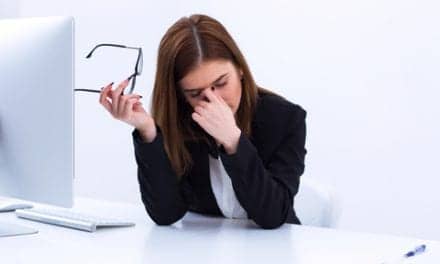The Virgin Pulse Institute, an evidence-based organization that puts research to work to help employees and companies thrive, released results of a study designed to better understand employees’ sleep disturbances and offer actionable insight to both employers and their workforce. The research outlines why employers supporting sleep programs increase employee productivity, and how these programs help employees feel more appreciated and supported.
Leveraging an online sleep program from vielife, the Virgin Pulse Institute conducted a sleep study in November 2013 with approximately 1,140 employees, all Virgin Pulse members, from three US-based companies. Researchers found that:
- 76% of employees felt tired most days of the week
- 40% of employees doze off during the day once per month
- 30% of employees were unhappy or very unhappy with the quality or quantity of their sleep
- 15% doze off during the day at least once per week to once per day
Dr Jennifer Turgiss, a co-author of the study and director of the Virgin Pulse Institute, says in a release, “Showing up to work sleep deprived can be the equivalent of showing up to work intoxicated. Employees who don’t sleep well have poorer concentration, poorer decision making abilities, are significantly less able to cope with stressful situations, and are more likely to make unhealthy choices. The effects of poor sleep impair people’s focus and motivation, preventing them from reaching their full potential. In attempts to encourage employees to live healthier, often employers–with the help of their health insurers or wellness vendors–focus on simply improving diet and exercise, but this approach ignores one critically important habit: sleep. With its direct link to dangerous health conditions and steep productivity losses, a well-rested workforce is critical to a company’s success.”
Reported Causes
The Virgin Pulse Institute study found four key themes keeping employees awake at night: worry/stress, mental activity, physical discomfort, and environmental disrupters. Many factors within these categories kept participants awake, including:
- Temperature too high or too low (85.2%)
- Their partner (71.9%)
- Unwanted noise (68.6%)
- Light-too bright (52.8%)
- Mattress (40%)
- Young children (35.9%)
- Medical condition that disturbs sleep (10.2%)
Sleep deprivation was found to have impacts across four key areas: physical well-being; cognitive abilities and productivity; mood; and stress management. Lack of sleep leaves employees less focused on the job and unable to perform at their peak, and leaves them experiencing a decreased feeling of overall well-being, according to the Institute study.
Participants noted that lack of sleep impacted their energy and motivation to participate in physical activities and eat healthy foods. They experienced difficulty concentrating at work or remembering tasks, and felt more irritable at work and home. Sleeplessness also made it harder to manage stress, further impacting their difficulties sleeping.
Here are some quotes from participants:
“I come in here in the morning and it’s kind of hard to get motivated. I’ll be yawning and carrying on and kind of drag for an hour or so before I’m really probably engaged and back doing real performance type of work I would say. So it will be easy for me to just kind of lag around, drink some coffee, walk around, talk to people, or sit at my desk and read Internet news rather than actually work.”
“[I would] blow up at the wrong thing or you blow up at the wrong kid or something. And you just go, oh, man. I should have been able to handle that one.”
“And the other thing that I noticed when I go through the period where I have more lack of sleep, I feel more scatterbrained, like I have all of these things to do. And normally, I’m very organized and prioritize and will at least write a list, and everything goes out the window and I start forgetting to do things or bring this in the morning or things like that. And that really bothers me. I hate it when I drop a ball because I forgot something.”
“I think there is a slow-down, in terms of getting tasks done, just because, again, your attention span isn’t fully there. You might not be as with it.”
“I probably have got a shorter fuse, a little grumpier.”
“Our study made one thing clear: lack of sleep is crippling America’s workforce. Employers can’t turn a blind eye. Whether they offer an online sleep program, encourage employees to use vacation days, or provide other tools, employers must address sleep issues in order to create a thriving workforce and business,” Turgiss says. “Not only will employees be more rested, but they’ll feel more supported by their employers, helping them perform better and become better able to engage in work and in life.”
For the complete study, visit: http://connect.virginpulse.com/asleep-on-the-job-report-from-virgin-pulse.pdf.





